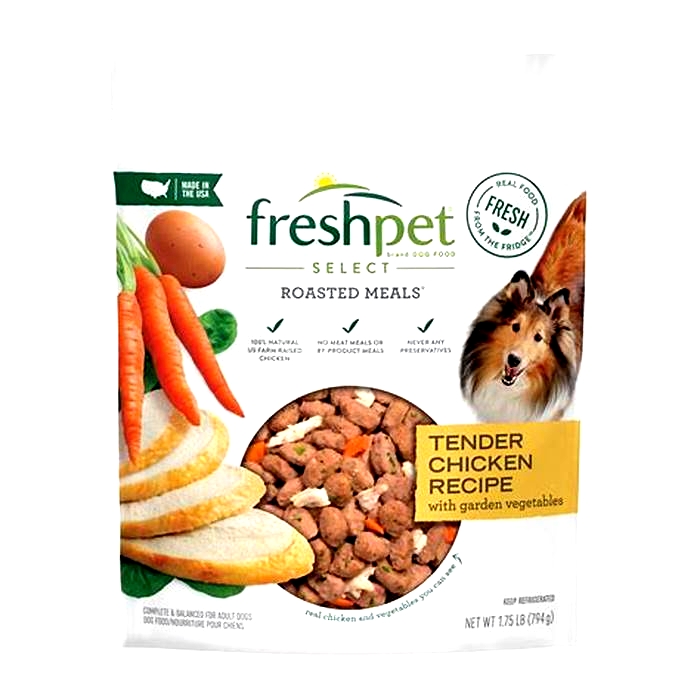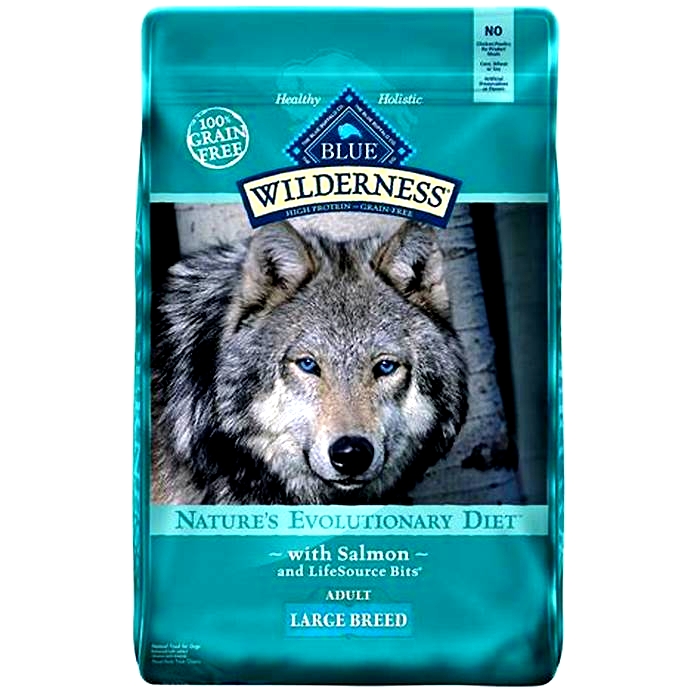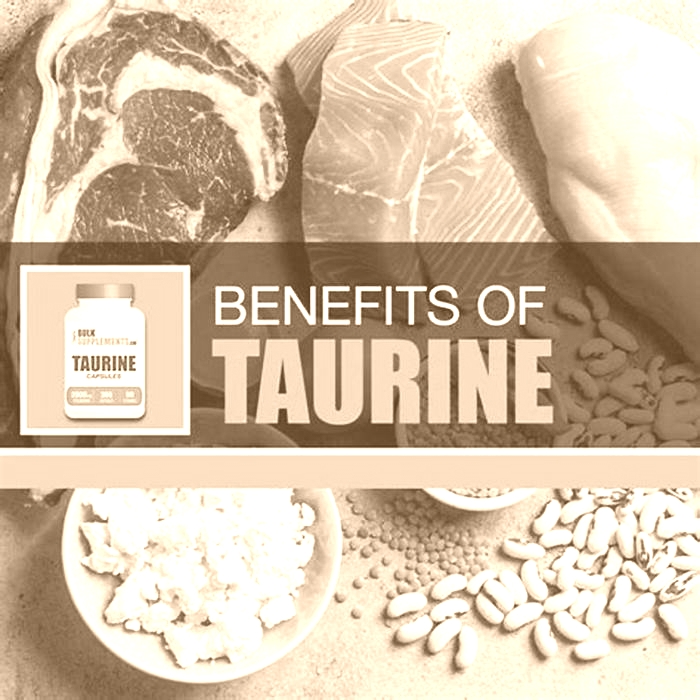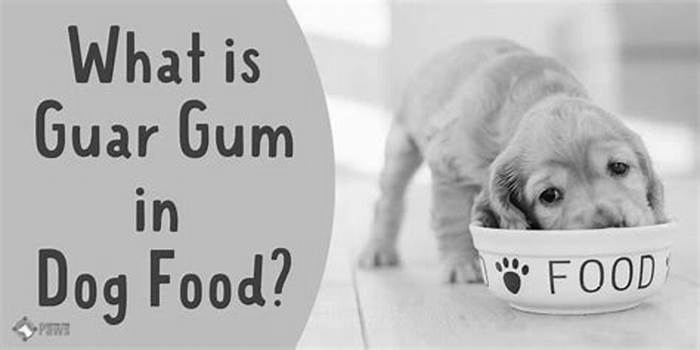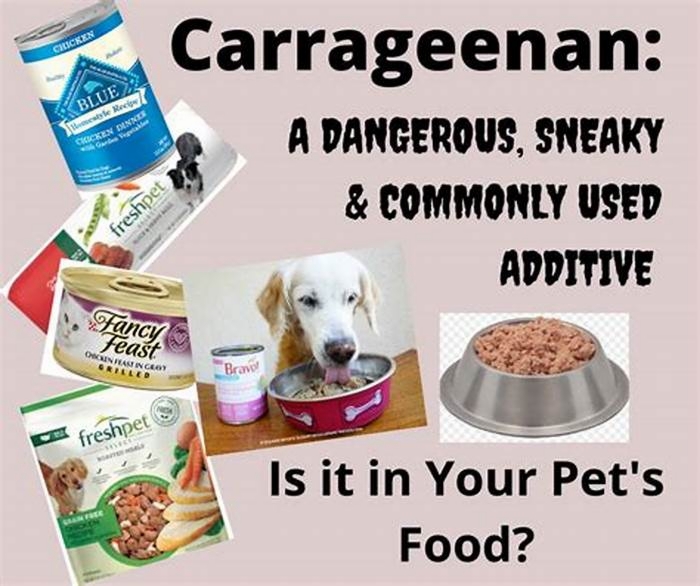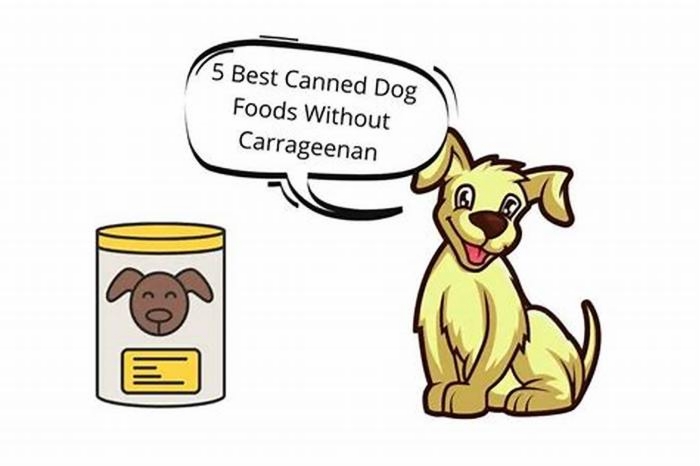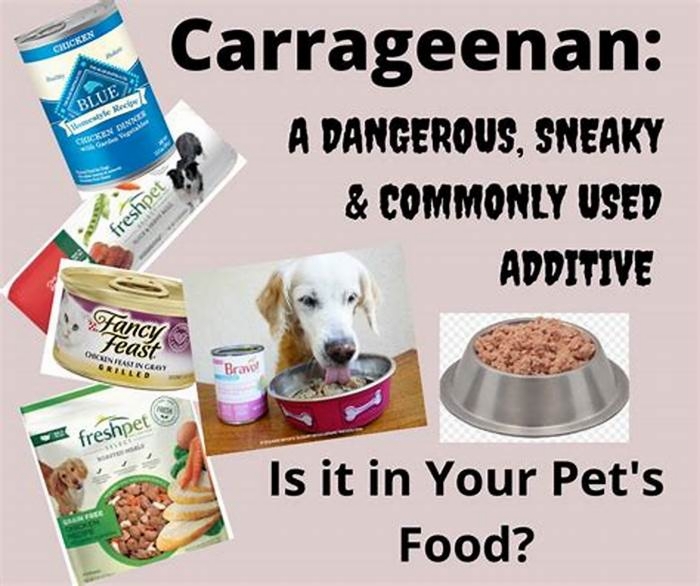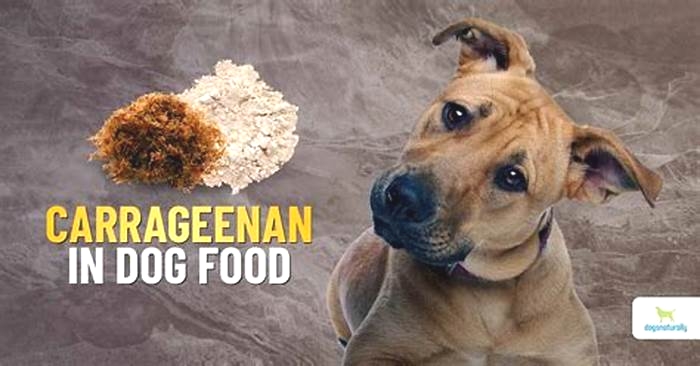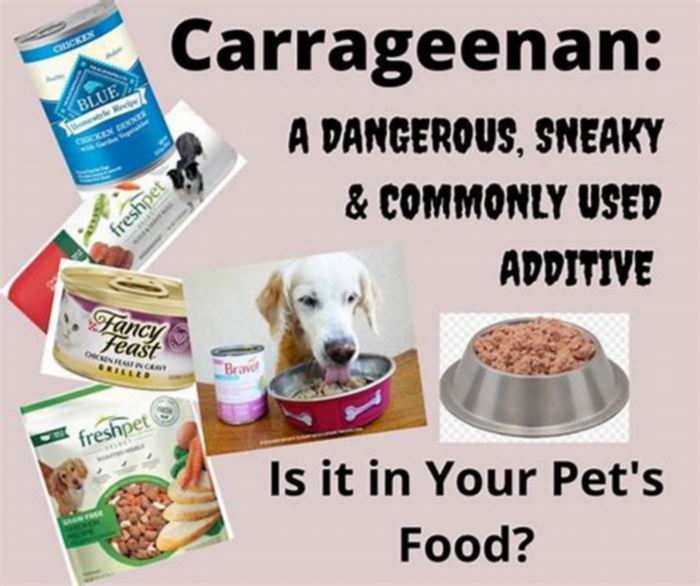What are the side effects of carrageenan in dog food
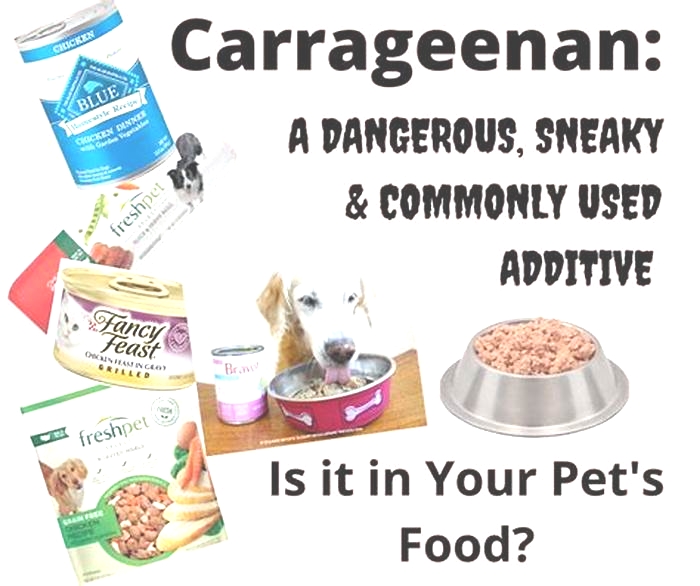
Carrageenan In Dog Food
What Is Carrageenan?
Carrageenan is a carbohydrate structure that is derived from red edible Seaweed. The process to create Carrageenan from Seaweed involves combining it with an Alkali.
What confuses many is that Carrageenan has multiple spellings, but they are almost always the same ingredient. Examples of alternative spelling that is commonly seen include Carageenan, Carrageenan, and Carrigeenin.
One of the most crucial facts about Carrageenan is that it offers little to no nutrition, including a negligible portion of protein, fat, and carbohydrates.
Also, Carrageenan does not offer any notable quantity of any required vitamins or minerals for dogs or cats.While it is most commonly found in pet food recipes, Carrageenan can sometimes be found in human food as well.
Examples of products for human consumption that may contain Carrageenan include Ice Cream, Milkshakes, and other desserts.
Carrageenan In Dog Food
Carrageenan is most commonly used as an ingredient in canned, wet, or moist dog food as well as cat food.Some research that we found would say that at one point in time, as much as seventy percent of commercially produced canned dog food included Carrageenan in varying quantities.
However currently, this percentage is estimated to be far lower, but it is still a significant proportion.
Carrageenans essential purpose in dog food recipes is to act as a thickening agent to bind the ingredients together and give the food a consistent texture and appearance.
Thickening agents are important components in canned pet food as if they are absent, this can cause the protein-rich ingredients present to become unappealing or to have an unpleasant texture.
Thickening agents can also be described as binding agents, emulsifiers, gelling agents, or stabilizers.
While these terms mean slightly different things, it is safe to bundle them together when they are mentioned in relation to pet food, as they are very similar.
Some alternative thickening agents or binding agents that are commonly found in pet food recipes include starches, like Potato Starch and Tapioca Starch, or gum-like ingredients, such as Xanthan Gum and Guar Gum.
Risks of Carrageenan
While opinions are mixed, some studies have shown that Carrageenan can cause several health problems in dogs, including Gastrointestinal Inflammation as well as increased rates of intestinal lesions, ulcerations, and in extreme cases, malignant tumors.
The malignant tumors are particularly concerning for dogs owners as these can be cancerous.
However, the cause of these health issues is a by-product that is produced from the Carrageenan production process known as poligeenan.
Poligeenan is the low-molecular form of Carrageenan, which can be harmful, and Poligeenan is the cause of the symptoms mentioned above.
The reason that some dogs experience these symptoms is due to an immune response that some dogs will inhibit after digesting Carrageenan.
This immune reaction is the cause of the inflammation, and then sustained inflammation is then the cause of the more severe side effects.
However, Poligeenan is supposed to be separated and removed from the Carrageenan during production, but some believe this doesnt always take place or isnt 100% effective.
There are strong opinions by some pet food bloggers and enthusiasts that Carrageenan has no place in dog food and would go as far as to say that it should be banned.
One very strong example to support this sentiment is that Carrageenan has been banned for use in baby formula or baby food in the European Union, which is often a world leader in identifying harmful substances.
While this ban was precautionary and not fully substantiated, it does give a strong suggestion that Carrageenan could be harmful.
Moreover, in 2016, the use of Carrageenan was banned in the United States for foods that are categorized as Organic.
Many in the industry were disappointed at this decision and claimed that it would result in fewer organic options available for consumers.
Dog Food Brands That Use Carrageenan
Carrageenan is one of the most common ingredients in wet dog food recipes and is used by a number of well-known and established dog food brands.
In fact, while researching the use of ingredients in dog food recipes, we found that of the 100 most popular wet dog food recipes on Chewy.com, 48 of them contained Carrageenan as an ingredient, which is almost a majority.
However, this pales in comparison to Guar Gum which was found in 73 of the 100 recipes but is comfortably above others like Xanthan Gum or Cassia Gum.
Some examples of pet food brands that use Carrageenan that you may recognize include Pedigree, Rachael Ray Nutrish, FreshPet, Wellness, Blue Buffalo, Newmans Own, Nutro, Purina Pro Plan, Purina One, Royal Canin, and Hills Science Diet.
The inclusion of Purina, Royal Canin, and Hills in this list is significant as these three brands are considered the leaders of the industry and perform the most research on formulation and ingredients.
Their continued use of Carrageenan, despite its controversy, shows that they believe it is an appropriate dog food ingredient.
You can see an example of the use of Carrageenan in a dog food recipe below, where it is featured in the ingredient list of Purina Pro Plans Classic Adult Complete Essentials Chicken & Rice Entree recipe.
In this recipe, Carrageenan is present in a very small quantity, even below salts, but is alongside Guar Gum, and these two ingredients act in unison to bind the food together.
However, as we eluded to earlier, Carrageenans use has seen some decrease in recent years as some brands have chosen to move away from it and use alternatives that are deemed safer or more natural.
Some brands have taken this to the extreme and have gone as far as to display or advertise that their products are Carrageenan-free.
If you wish to avoid Carrageenan or other thickening agents entirely, then it may be wise not to feed your dog canned or wet dog food.
While dry dog food is far from perfect, it does not require thickening agents such as Carrageenan and instead relies on vegetable ingredients like Legumes and Starches.
Should You Remove Carrageenan from Your Diet?
Carrageenan is a common food additive but it may cause digestive side effects and has a potential link to colon cancer. While more research is needed, you may want to remove it from your diet.
Carrageenan is an additive used to thicken, emulsify, and preserve foods and drinks. Its a natural ingredient that comes from red seaweed (also called Irish moss). Youll often find this ingredient in nut milks, meat products, and yogurt.
Since the late 1960s, theres been controversy surrounding the health effects of carrageenan. Some evidence suggests that carrageenan triggers inflammation, gastrointestinal ulcerations, and that it damages your digestive system. People have been petitioning for products with carrageenan to be labeled with a warning or removed entirely. Read on to learn more about this common food additive and why you may want to avoid it.
Products with carrageenan may be labeled as natural, but limited studies show that carrageenan may promote or cause:
Increased inflammation can lead to a greater likelihood of other diseases, such as:
One
But many of the studies conducted on the dangers of carrageenan were on animals and cells. Reports of bloating, irritable bowel syndrome, and other digestive issues are mostly self-reported. People also report relief when they drop carrageenan from their diet.
There need to be more human studies to confirm any link between carrageenan and digestive problems. In the meantime, you may want to limit how much carrageenan you consume.
The Food and Drug Administration still approves this ingredient. But in 2016, the National Organic Standards Board voted to remove carrageenan from their approved list. This means foods made with carrageenan can no longer be labeled USDA organic.
Carrageenan tends to be in vegan and vegetarian products. Since its a plant, manufacturers use it to replace gelatin, which is made from animal parts.
Carrageenan has no nutritional value, so you dont have to worry about missing anything when you remove foods containing it. Finding replacements for vegetarian or vegan foods without carrageenan is possible. Just remember that carrageenan-free milks may separate. This is natural. All you have to do is shake well before pouring.
To see which brands are carrageenan-free, take a look at Cornucopias shopping guide. Carrageenan is also found in pet foods, especially canned ones. Choose a brand that does not contain this additive.
If youre worried about the side effects of carrageenan, take it out of your diet and see if theres any improvement in how youre feeling. Its legally required to be listed under a products ingredients, so it should be easy to start to figure out what foods to eliminate.
Talk to a doctor if you continue to experience inflammation or digestive issues after removing carrageenan. This may signal that carrageenan isnt responsible for your symptoms.
Read more: The ultimate guide to every kind of milk
Carrageenan in dog food
Carrageenans (E407) are a group of long, flexible polysaccharide chains (a type of carbohydrate) that are extracted from red edible seaweeds and have been used as a food additive for hundreds of years.
Its curling, helical structures allows carrageenan to form a gel at room temperature which has led to its widespread use as a gelling agent in both the human and pet food industries. In human food, carrageenan can be found in all sorts of foods from soy milk and yogurt to ready-meals and deli meats. In pet food, carrageenan is generally only found in firm wet foods like pats and 'loaf' foods.
Usage
Carrageenan is used as a gelling agent to give pat and loaf type wet pet foods their characteristic firm consistency. While there are a number of alternative gelling agents (agar-agar, konjac and alginate), carrageenan is by far the most popular amongst wet pet food producers.
Carrageenan is often used in conjunction with thickeners like cassia gum, guar gum or locust bean gum. These thickeners enhance the strength of gelling agents like carrageenan.
Safety
Despite its widespread use and long heritage, carrageenan has attracted considerable criticism from certain quarters of the scientific community.
A number of studies [1][2][3] have linked food grade carrageenan (also known as un-degraded carrageenan or just CGN) to gastrointestinal inflammation as well as higher rates of intestinal lesions, ulcerations, and even tumours. Degraded carrageenan (sometimes called poligeenan or dCGN), though, is far more potent. It is a known carcinogen and is routinely used to induce inflammation in lab animals so that scientists can test anti-inflammation drugs. While degraded carrageenan is not permitted in pet food, there is concern that some food grade carrageenan may be contaminated with dCGN [4] and also that the acid environment of the stomach may degrade food-grade carrageenan to form dCGN [1].
HOWEVER, for every study suggesting carrageenan could be problematic, there is another indicating that it is perfectly safe. Although many of the more pro-carrageenan studies are funded by and in many cases directly carried but by carrageenan producers (Celtic Colloids, FMC) or their affiliates (Toxpertise, Iontox), they are still subject to peer review and not without merit. In particular, a comprehensive review carried out in 2014 concluded that no studies to date had adequately demonstrated any carcinogenic, tumour promoter, genotoxic, developmental or reproductive effects from consuming food grade carrageenan [5][6].
Most significantly, in 2018 the European Food Safety Authority carried out its own investigation into carrageenan and found no adverse effects from carrageenan in rats all the way up to 7,500 mg/kg of body weight per day, which is WAY more than is found in pet foods and was the highest dose tested [7]. They did, however, express some uncertainties over the general lack of reliable information on the additive's effects and suggested more work was necessary before they could be 100% sure of its safety.
Which foods contain carrageenan?
As mentioned above, carrageenan is generally only used in pat and loaf type wet pet foods.
Unfortunately, without your own lab, figuring out whether any specific pat or loaf food contains carrageenan can be very difficult.
Firstly, since it is a technological additive and only needs to be added in very small amounts, carrageenan does not have to be declared by the manufacturer so just because it is not on the label does not mean it's not in the food. The manufacturer is also under no obligation to tell you, even if you ask them directly.
Secondly, the pet food company itself might not even know that its foods contain carrageenan. This is because many wet food producers outsource their manufacturing to third party factories who may add carrageenan (most often as a component of the vitamin and mineral premix) without specifically notifying the producer. Some factories even actively withhold information like this from their client companies.
We have tried to find out which pat and loaf wet foods do and do not contain carrageenan and we have added each brand's response to its product review pages. Where the information was not forthcoming, we have added the phrase 'not guaranteed carrageenan free by the manufacturer'. Unfortunately, though, we have the same problems in verifying this information as anyone else so while we can pass on their responses in good faith, we cannot guarantee their veracity.
Our advice
Carrageenan is certainly not the worst additive in pet food and for most dogs, the very small amount used is not likely to cause any upsets at all but we do still think caution is warranted. If your dog has a history of digestive upsets, it may well be best to look for a food that is free from carrageenan and other similarly controversial ingredients. Changing the diet up every so often would also help to limit the chances of carrageenan or any associated issues from building up in the dog's system over time.
If you do decide to avoid carrageenan, due to the total lack of transparency over its usage, the only way to be 100% sure would be to steer clear of firm wet foods like pats and loaf foods altogether.
References
- Review of Harmful Gastrointestinal Effects of Carrageenan in Animal Experiments. Tobacman JK. Environmental Health Perspectives 109(10): 983-994. 2001. https://www.ncbi.nlm.nih.gov/pmc/articles/PMC1242073/
- Exposure to common food additive carrageenan leads to reduced sulfatase activity and increase in sulfated glycosaminoglycans in human epithelial cells. Yang B, Bhattacharyya S, Linhardt R and Tobacman JK. Biochimie 94(6): 1309-16. 2012. https://www.ncbi.nlm.nih.gov/pubmed/22410212
- Exposure to the common food additive carrageenan leads to glucose intolerance, insulin resistance and inhibition of insulin signalling in HepG2 cells and C57BL/6J mice. Bhattacharyya S, O-Sullivan I, Katyal S, Unterman T and Tobacman JK. Diabetologia 55(1): 194-203. 2012. https://www.ncbi.nlm.nih.gov/pubmed/22011715
- Molecular weight distribution of carrageenans studied by a combined gel permeation/inductively coupled plasma (GPC/ICP) method. Yoshitaka Uno, Toshio Omoto, Yasunori Goto. Food Additives & Contaminants. 2010. https://www.tandfonline.com/doi/abs/10.1080/02652030117235
- Food additive carrageenan: Part I: A critical review of carrageenan in vitro studies, potential pitfalls, and implications for human health and safety. McKim JM. Critical Reviews in Toxicology 44(3): 211-43. 2014. https://www.ncbi.nlm.nih.gov/pubmed/24456237
- Food additive carrageenan: Part II: A critical review of carrageenan in vivo safety studies. Weiner ML. Critical Reviews in Toxicology 44(3): 244-69. 2014. https://www.ncbi.nlm.nih.gov/pubmed/24467586
- Re?evaluation of carrageenan (E 407) and processed Eucheuma seaweed (E 407a) as food additives. EFSA Panel on Food Additives and Nutrient Sources added to Food (ANS). EFSA Journal. 2018. https://efsa.onlinelibrary.wiley.com/doi/full/10.2903/j.efsa.2018.5238
Find foods containing Carrageenan See the full Ingredient Glossary

